Text:
By Sonja Lapatanov
The charismatic principal ballerina of the Serbian National Theatre (SNT), Ana Đurić was born in Zaječar, in 1991. She gained her first knowledge about ballet in Bor, a town where she lived and attended an elementary ballet school. As a small child, Ana did not take ballet very seriously because she wanted to be a pianist. However, after her family moved to Kragujevac, she continued attending the local ballet school. This fragile looking girl could not even imagine that, one day, she would become a professional ballet dancer. That moment happened when she failed to win any awards at her first dance competition. However, her incredible talent led her to win the first place next year, at the same competition. That was one of her first U-turns. From then on, Ana was adamant on becoming a professional ballet dancer. As a teenager, she decided that the time has come to move to a big city and continue schooling there. After moving to Belgrade, Ana got enrolled in ballet school Lujo Davičo. She graduated in 2010 with great success, in the class of professor Rosa Milić. Ana was more than happy to share with Diplomacy & Commerce’s readers interesting moments from her life and her career, filled with unusual events, incredible developments and unpredictable situations.

During your schooling in Belgrade, you lived at a dormitory for four years. Was that difficult for you?
— I didn’t have time to think about that because my whole day was planned ahead. In the morning, I attended a gymnasium, followed by ballet and other dance classes. After the classes, I had evening rehearsals and had to practice my performances for the upcoming competitions. I spent very little time at the dormitory. I would just sleep there, on a pull-out sleeper chair. The room was originally meant for four students, but they added that one chair just for me because I was small and could easily fit on it. It often happened that, due to my hectic schedule, I didn’t eat at the dormitory. Sometimes it happened that forgot to eat properly for two days, and then would have a few tangerines just to satisfy my hunger.
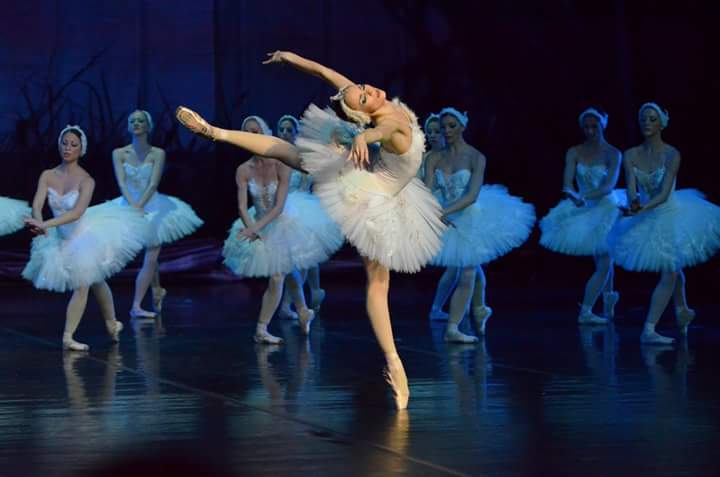
There is this interesting story about your days as a student that is circulating in the ballet world.
— You must be referring to that story when I broke my arm while rehearsing for the state competition in Pančevo. That was an incredible challenge for me. Most of my arm was in a cast, and in order to be able to move it, I had to cut the cast right below my elbow. I had only one wish back then – to beat my competition despite a serious injury. And I did, even with my arm in the cast. I overshadowed and beat them all. That was the real me.
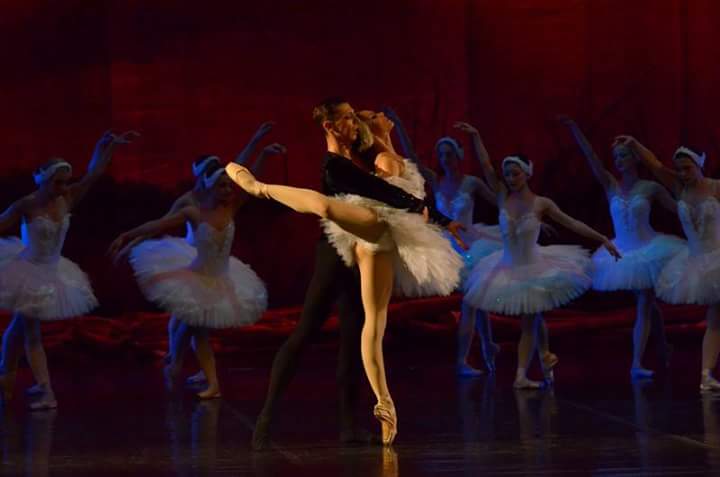
Right after graduation, you moved abroad– to a different continent to be precise.
— Yes, I accepted a very attractive offer from the Opera House in Cairo. Me and a few of my colleagues went to Egypt. That was my first professional experience that was, unfortunately, cut short with the onset of the Arab Spring. As soon as that happened, our government sent a plane to evacuate us from Cairo with the help of the Serbian Embassy there. I only brought my passport and the clothes I was wearing with me. Everything else was left in the theatre and the flat I was living in. Once I returned from Egypt, I got an engagement with the ballet troupe of the Serbian National Theatre in Novi Sad.
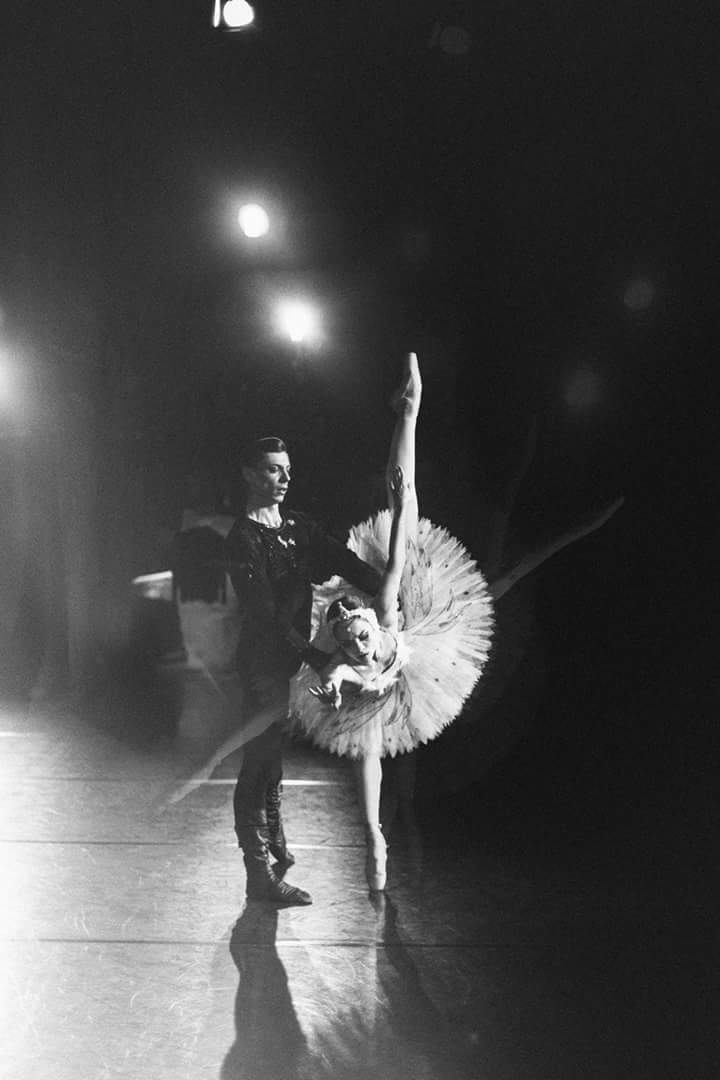
Dancing ballet while being a student and building a career requires a lot of „blood, sweat and tears“ and sacrifice.
— Ballet is my first love and I gave up everything because of it. I am afraid that one day I will have to choose between ballet and earthly love. For years, I have been practicing and working hard, and sometimes I want to give it all up. But that passes, and I go back to ballet. When I can’t do a certain movement, I cry at rehesals. Primaballerina Ašhen Ataljanc told me a secret once – she said when she was feeling anxious and nothing was going her way, she would scream on top of her lungs. Sometimes, when I feel like I am failing at everything, I stand in the middle of our rehearsal room and scream like Liza Minelli in that scene under a railway bridge in the cult classic „The Cabaret“.
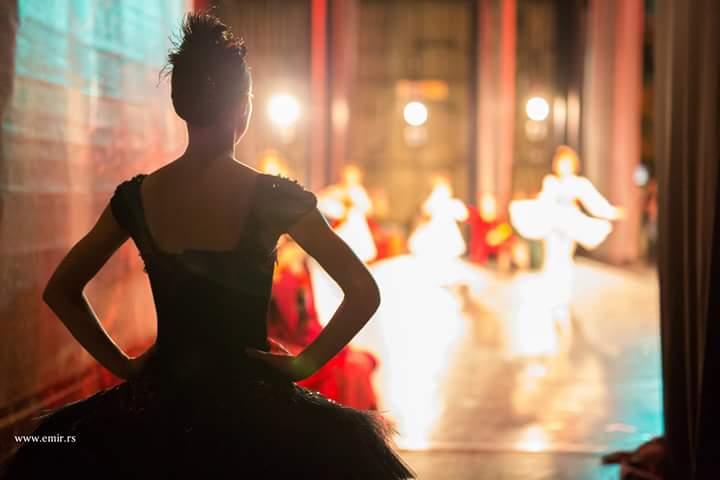
Although you are quite young, you have a succesful and praise-worthy career, as well as an impressive number of classic ballet roles.
I have played a number of major and significant solo roles, for which I have received many professional and social awards, praises and recognitions. I have to confess all of this feels amazing! I am very proud of my prestigious awards and my roles, my Kitri (Don Quixote), Clara (Nutcracker), Princess Aurora (Sleeping beauty), Odette-Odile (Swan lake), Julia (Romeo and Juliet), Giselle (Giselle), Marina (Greek Zorba), Katarina (Katarina Izmailova) …I would like to mention that none of that would have come true if it wasn’t for my teacher, the primaballerina Oxana Storozhuk who taught me everything I know. She is my ballet mother, sister and a friend. I am very grateful to her for everything.
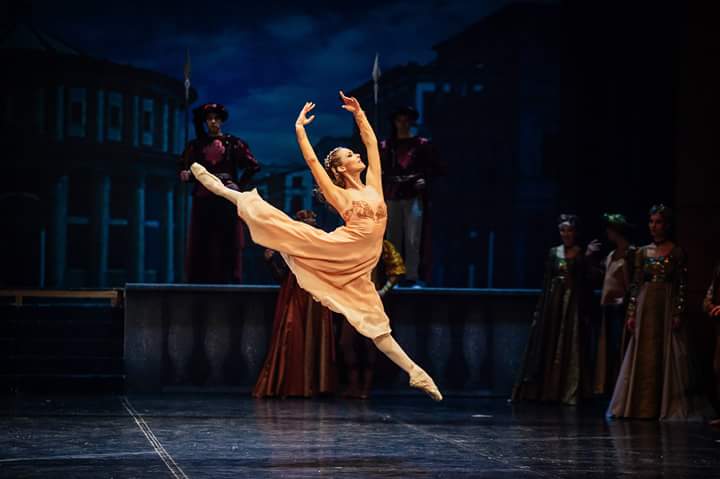
To dance in all major roles by the age of 26 is a really fantastic success and privilege that only the most talented relish in. You should be complimented on that. You are seen as the personification of a ballerina, born to dance on tiptoes. Are you interested in other types of artistic dance?
— I am, first and foremost, a classical ballet dancer, but I manage really well in neo-classical roles, modern and jazz ballet, traditional folk dances, and even in street dance which I practiced when my friend and I were planning to participate in a world championship. I love to compete and win. I also prefer French over Russian ballet school because it is more subtle. I am a gentle and romantic person, and I love to wind down after a hard day by reading books.
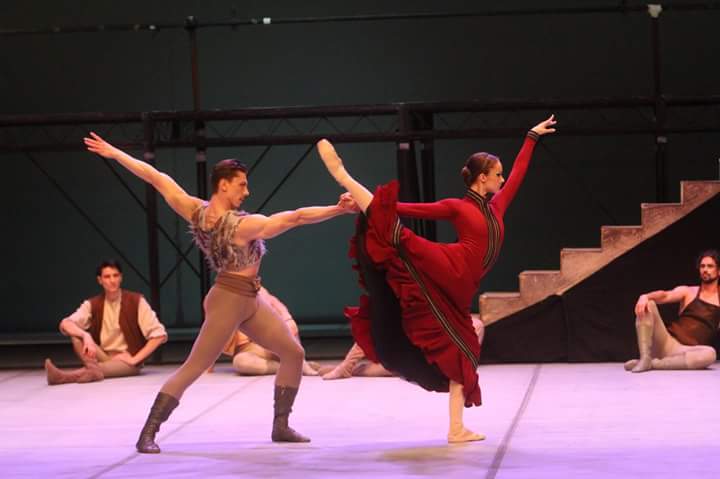
Do you get nervous before a performance?
— Although I have performed numerous times, I always get nervous. I especially have stage freight when my family is in the audience. Then it often happens that I make a mistake in places where I never make one. My favourite stages are those in Berlin, Rome and Mexico, but my absolutely favourite one is definitely the stage in Udine. This small Italian town has a big theatre and a huge stage. When I stepped on it for the first time, I was confused and scared. Tickets for ballet always sell out there, and the feeling you get when 4,000 people are applauding you, throwing flowers onto the stage, chanting your name, giving you a standing ovation and want your autograph is phenomenal. I always feel magnificent there.
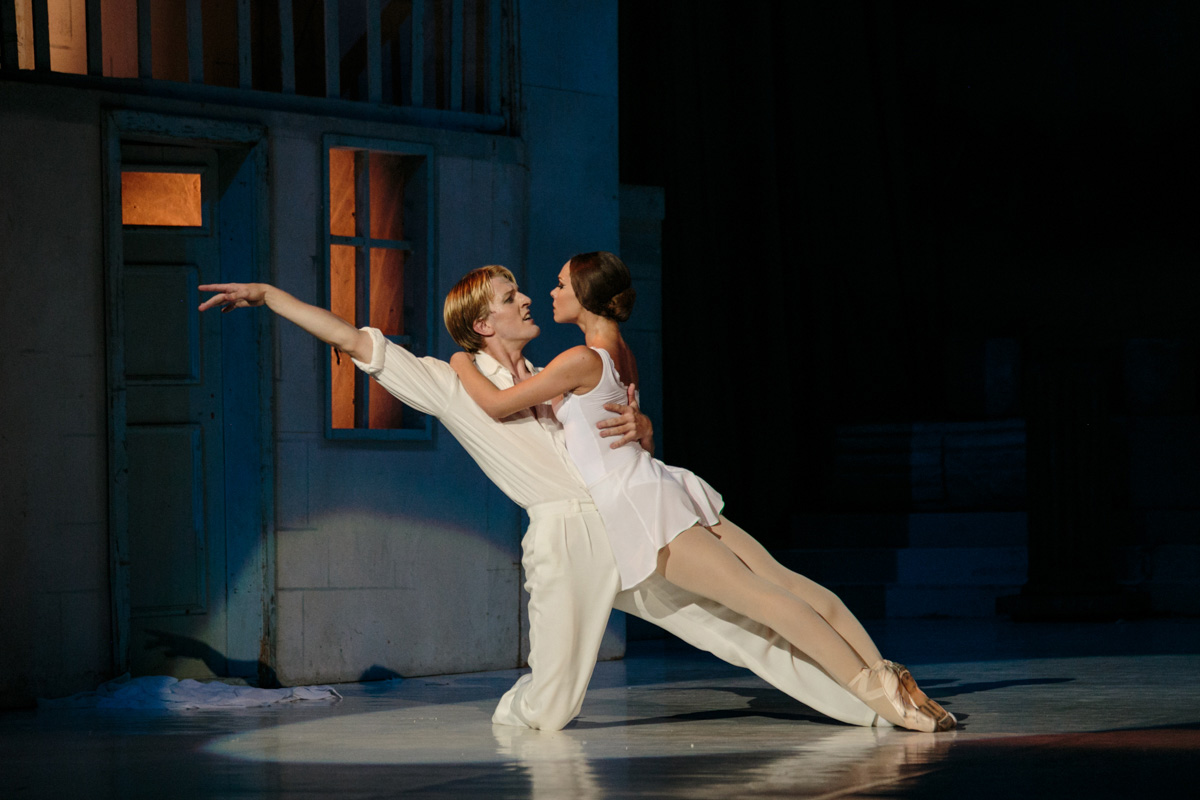
Are you superstitious?
— I am superstitious, but I don’t have favourite ballet shoes, or a ritual I do before I step onto the stage. I like it when people use that spitting noise to wish me luck before a performance, just like my teacher did. When I have an important day ahead, I eat specially prepared food, and I use one special road to get to the theatre that only I know of. Just in case!
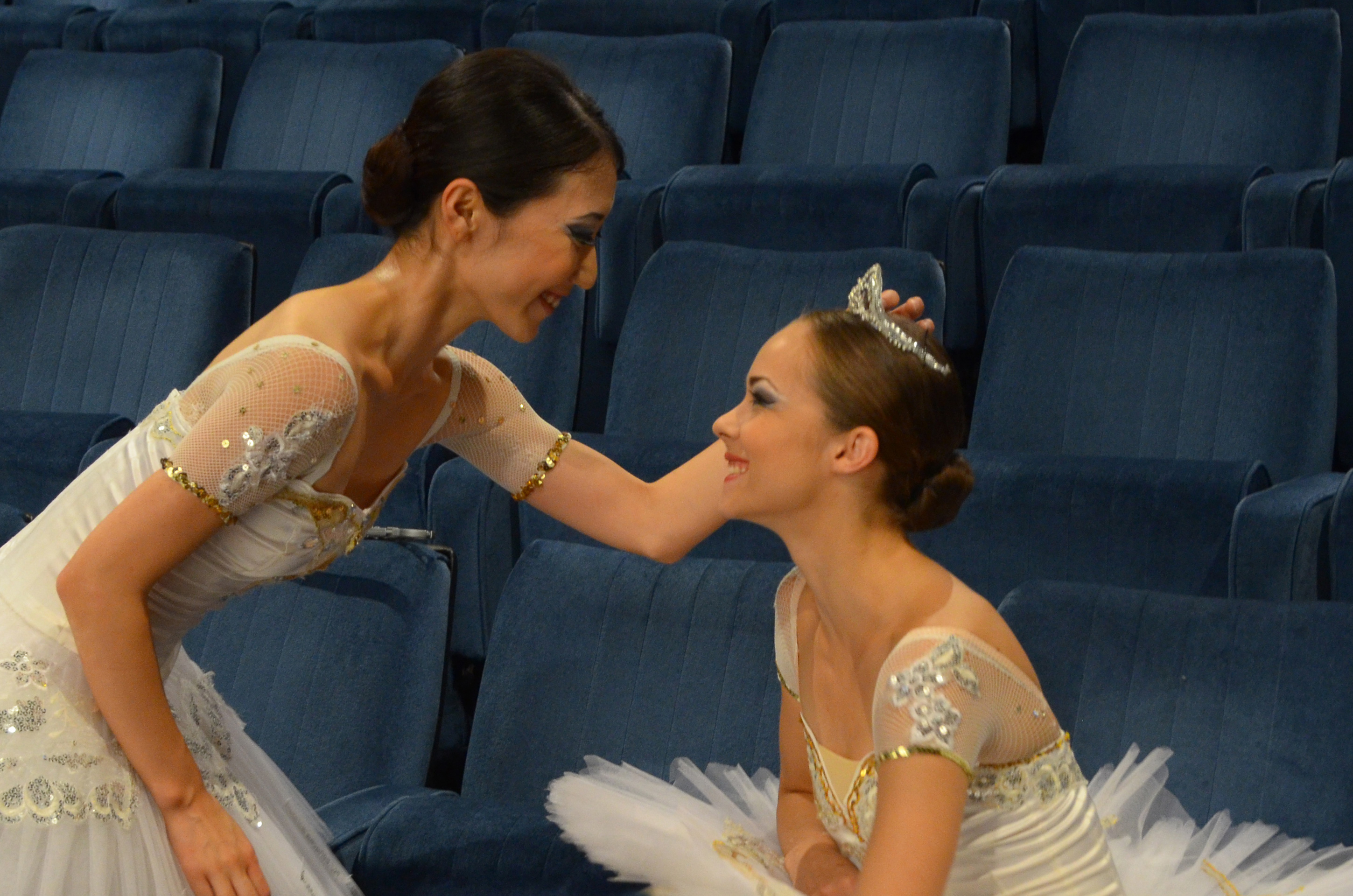
Have you given any thought to dancing abroad, or moving to Belgrade?
— At the beginning of my career, I wanted to dance in a troupe and travel the world with it. I had plans, desires and offers, but after Cairo, I decided to stay in Serbia and use my dance to draw people here closer to ballet. I was offered to move to Belgrade, but that invitation came too late. It should have happened before I left for Cairo. I built a career in Novi Sad. I play the most important ballet roles, coreographers trust me, I am happy and there is no need to move anymore. Although, I am never home regardless of the town I live in. Novi Sad is the town where I live and create, and the town that I came to sincerely love.
Are you thinking about distant future?
— Considering that the career of a ballet dancer is very short, I am going to dance as long as I am the best. Once my career as a dancer ends, I am going to teach ballet which I am good at, especially when I work with children.